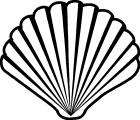Lately one of my "obsessions" has been reading online commentary on global warming / climate change. Trying to be fair and balanced I have looked at a number of different sites especially with a view to being more informed as our politiicians ramp up the environment as
the issue in Canada at the moment. Secondly, with all the rather freakish weather we have been having this winter "global warming" as a cause has been on everyone's lips, rightly or wrongly.
What have I learned? What conclusions have I come to? Well, for starters, the question is not whether there is global warming or not. There is. The question(s) are to what extent? is it rapidly changing the planet as we know it and all for the worse? how much of it is caused by human activity such as emissions from coal fired plants and the burning of other fossil fuels? if we are causing it can we then alter the pace by curbing our energy consumption or is it too late? what can one country do acting alone if the issue is
global? have there been other periods when the earth was this warm and is, then, warming and cooling simply the way our universe evolves (think of geological ages when dinosaurs walked through swamps later to be followed by ice ages)? are there other factors besides human activity that are causing global warming (some climatologists cite changes in the sun's activity, earth tilt, and so on)? if global warming is going to happen anyway without human activity, perhaps the question should be are we ready to adapt to this changing world? what plan do we have? why is CO2 considered such a 'bad' emission when even the most elementary science tells us that green plants
need CO2? Some people might say "so what if we have a warmer greener world? isn't that better than a colder one?"
Now, trying to sort out and find answers to these questions and other related ones is not so easy. I think to a great extent the issues get mixed up in people's minds. Certainly we need to work on reducing pollution of all kinds in our country: we all want to know that we are breathing clean air and that the water we drink is pure. We aren't happy here in the Annapolis Valley when we get an air inversion in the summer and smog drifts into our area to the extent that we get the dubious distinction of being called "the tailpipe of North America." I'm concerned when I read reports of contaminated rivers and when I hear of the extent of pollution in the Great Lakes.
Personally, we have been reusing and recycling and working on saving energy for years and we want to continue to do so. We need to promote alternate energy sources - solar, wind, geothermal, biofuels and so on. I hope the farmers in my agricultural area get excited about the production of biofuels; I don't personally know much about this but from what I have read it sounds exciting and a good use of less productive land. An easy way for most of us to cut our energy consumption is to switch to the new fluroescent light bulbs; we have made the switch to those in many of our light fixtures and find they work well.

